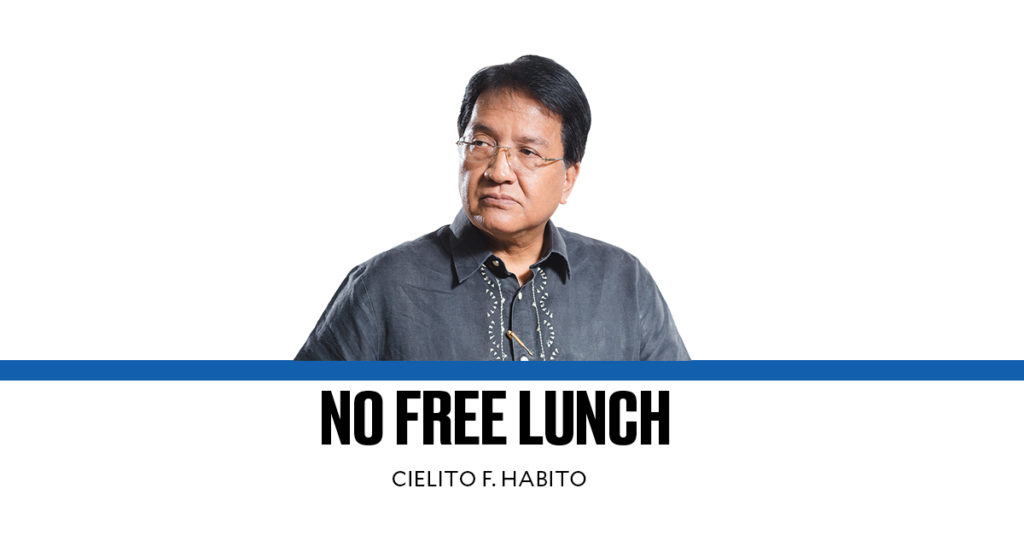It’s that time of year again when many a small entrepreneur is led to throw up his/her hands in anguish over all the paperwork and legwork they must do to renew their business permits and update tax and regulatory requirements. Years ago, a young entrepreneur asked me in exasperation: “Why does our government seem intent to put every obstacle they could possibly think of in the way of small businesses?” He was unhappy at how he needed to spend too much of his time attending to all the rules, regulations, and documents that various government offices require, rather than be able to devote his valuable time running the business.
This time I’m encountering the problem more directly. I hear the same rants again, this time from my business partner who actively runs an enterprise we set up with a group of friends in a neighboring city some time ago. With the Omicron variant of the COVID-19 virus raging around us, our poor office assistant has been needlessly risking infection doing a lot of legwork in various government offices—the local city hall, the Bureau of Internal Revenue (BIR), Department of Labor and Employment (DOLE), and other agencies an enterprise like ours must obtain clearances from.
One would think that two years into this pandemic, and well into the digital age, these offices would have already provided systems to eliminate or minimize legwork in complying with their requirements. Yet in the past year, we had to deal with at least one office that still has to have everything done physically in their premises, even as the pandemic had scaled down their frontline services with part of their staff working from home. Never mind that traveling from where our business is to their Metro Manila office is a costly proposition in terms of time, effort, and money. Their excuse? “We still don’t have the capability to install an online system.” Dinosaurs like that should not be part of a government whose avowed mission is to serve the public (that’s why they’re called public servants!) and enable economic activity, on whose taxes their very salaries depend.
Many of us know what this annual ordeal is like. With city hall, my personal peeve is the fire safety clearance, which many a local fire marshal has turned into a painful joke. You can only buy or refill your fire extinguisher from their “accredited” local supplier, and in many places, there’s only one—a sanctioned monopolist with a captive market (in complete violation of the Philippine Competition Act, I must add). Then you discover that even if it never found use, their fire extinguisher would have lost its charge in a year (I’ve read that they’re supposed to be good for up to six). Fire safety? Sounds more like false security to me.
Then there’s the need to prove to DOLE that the 13th-month salaries of employees have been paid. But what took the cake is the BIR annual ritual of registering company books. Our office assistant had to line up for the submission because our usual bookkeeper had come down with COVID-19. And when we asked BIR if we can get an extension because of this, they said we needed to write a formal letter, have it notarized, and submit with a corporate secretary’s certificate (oh, don’t we all just love paperwork!). Otherwise, we would have to pay the hefty fine. So we sent our assistant to the BIR office early, where she got No. 50 in the queue, but because only 20 are allowed inside at a time, ended up waiting out in the sun all morning. She finally got her turn later in the day, practically a day’s work lost. (We later learned that the same office closed for a few days because of a confirmed COVID-19 case in the staff.)
There are many more such stories to tell, and readers have sent me countless similar stories in the past. If our economy had lagged behind our comparable neighbors over many years (we now have the lowest average income among our Asean-5 peers), the clue lies in my friend’s question: Why is our government seemingly intent on making things hard for small, struggling entrepreneurs?
It’s time the government ceased being a burden, but instead truly help businesses like this, create jobs, improve lives, and enliven the economy.
cielito.habito@gmail.com
For more news about the novel coronavirus click here.
What you need to know about Coronavirus.
For more information on COVID-19, call the DOH Hotline: (02) 86517800 local 1149/1150.
The Inquirer Foundation supports our healthcare frontliners and is still accepting cash donations to be deposited at Banco de Oro (BDO) current account #007960018860 or donate through PayMaya using this link .
